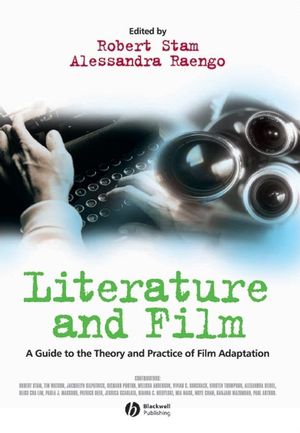Literature and Film: A Guide to the Theory and Practice of Film AdaptationISBN: 978-0-631-23055-7
Paperback
384 pages
October 2004, Wiley-Blackwell
 This is a Print-on-Demand title. It will be printed specifically to fill your order. Please allow an additional 10-15 days delivery time. The book is not returnable.
Other Available Formats: Hardcover
|
||||||
Notes on Contributors.
Preface.
Acknowledgments.
Introductory Essay: The Theory and Practice of Adaptation: Robert Stam.
1. Improvements and Reparations at Mansfield Park: Tim Watson (Princeton University).
2. Keeping the Carcass in Motion: Adaptation and Transmutations of the National in The Last of the Mohicans: Jacquelyn Kilpatrick (California State University, Channel Islands).
3. The Discreet Charm of the Leisure Class: Terence Davies's The House of Mirth: Richard Porton (Cineaste magazine).
4. In Search of Adaptation: Proust and Film: Melissa Anderson (CUNY Graduate Center).
5. The Grapes of Wrath: Thematic Emphasis through Visual Style: Vivian C. Sobchack (UCLA).
6. Cape Fear and Trembling: Familial Dread: Kirsten Thompson (Wayne State University).
7. The Carnival of Repression: German Left Wing Politics and The Lost Honor of Katarina Blum: Alexandra Seibel (New York University).
8. Serial Time: Bluebeard in Stepford: Bliss Cua Lim (University of California, Irvine).
9. Boyz ‘N the Hood Chronotope: Spike Lee, Richard Price, and the Changing Authorship of Clockers: Paula J. Massood (Brooklyn College, CUNY).
10. Defusing The English Patient: Patrick Deer (New York University).
11. Carnivals and Goldfish: History and Crisis in The Butcher Boy: Jessica Scarlata (New York University).
12. Mild Revisionism, Failed Revolts: Esquivel's and Arau's Like Water for Chocolate, A Retrospective View: Dianna C. Niebylski (University of Kentucky).
13. Beloved: The Adaptation of an American Slave Narrative: Mia Mask (New York University).
14. Oral Traditions, Literature and Cinema in Africa: Mbye Cham (Howard University).
15. Memory and History in the Politics of Adaptation: Revisiting the Partition of India in Tamas: Ranjani Mazundar (Jamia Millia Islamia).
16. The Written Scene: Writers as Figures of Cinematic Redemption: Paul Arthur (Montclair State University).
Index



